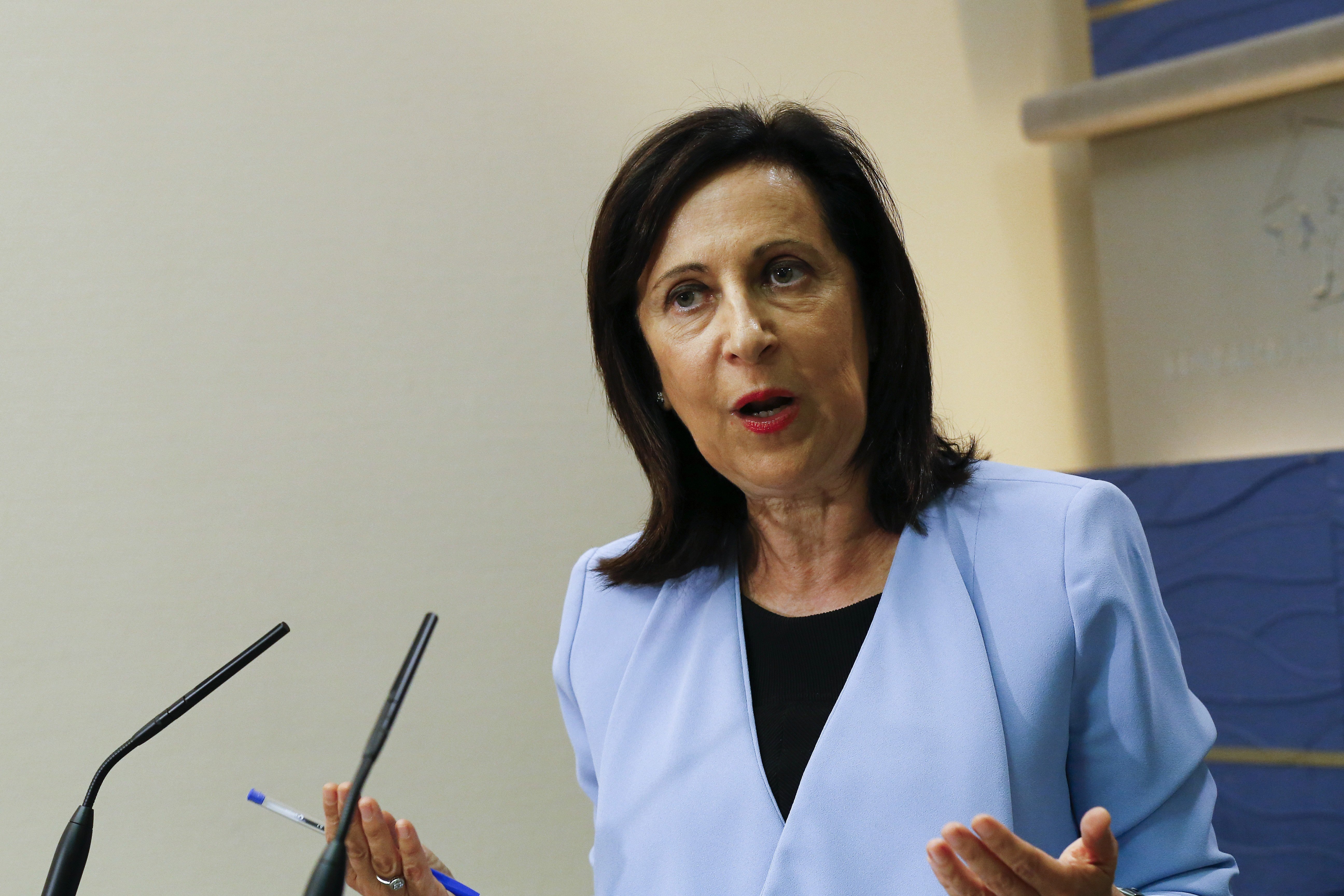The alliance between PP (Popular Party) and PSOE (Spanish Socialist Workers' Party) to stop the referendum in Catalonia is now a reality. This morning the main Spanish parties have shown verbal synchronicity in the face of what they consider a challenge to the constitutional order. This comes the day after the announcement of the conversations between the Spanish prime minister, Mariano Rajoy, and the leader of PSOE, Pedro Sánchez, to coordinate the legal response to the independence movement. "In the case that some crime is committed, the ballot boxes will have to be removed on 1st October [the day of the planned referendum]", said PSOE's spokesperson in the Spanish Congress, Margarita Robles, in an interview with radio station Onda Cero.
In spite of the support for this measure, Robles wanted to be precise about her support for intervention in the 1st October referendum: "We will have to see how they set up the ballot boxes and if they call them ballot boxes", the PSOE deputy said, the morning after the announcement of the text of the proposed law of Transitional Jurisdiction and Foundation of the Republic. Robles' statements are set within the context of the opening of a permanent channel of communication between Rajoy and Sánchez to coordinate the legal strategy against the referendum and the disconnection laws.
Valueless referendum
Robles does not see 1st October as a binding referendum, as the Catalan government plans, rather as a poll without any repercussions. "They can set out ballot boxes, but from the legal point of view it does not have any value," she said.
Separately, the PSOE spokesperson also noted, as a warning to Puigdemont's government, that the architects of the unofficial 2014 referendum (Artur Mas, Joana Ortega, Irene Rigau and Francesc Homs) were all convicted by the legal system. This precedent, according to Robles, goes with the warning from the Constitutional Court about the use of public money for the referendum, which could lead to charges of misuse of funds.
The law, "a grotesque botch"
After finding out the contents of the proposed law of Transitional Jurisprudence, which is meant to set the basis for a future Catalan republic, PSOE have increased the tone of their rhetoric. This was seen today in their spokesperson's statements, which described the legal text as a "grotesque botch".
Regarding the facts, Robles assured that the Spanish prime minister and the PSOE leader will keep a constant line of communication to reverse the effects of the proposed laws of the Referendum and of Transitional Jurisprudence announced by Junts pel Sí (Together for Yes) and the CUP (Popular Unity Candidacy). "What is happening in Catalonia is of enormous importance," she said.
PP and PSOE, hand in hand
In another interview this morning, the vice-secretary of social and sectoral policy of the PP, Javier Maroto, has praised the good relationship between PP and PSOE in the face of the independence referendum. Also a deputy in the Congress, he celebrated that the main Spanish parties are working "hand in hand" on the issue. He wish that this harmony would be lasting, unlike other occasions, when PSOE "supported the Spanish government on odd-numbered days and spoke of a plurinational state on even ones".
Maroto said that the measures planned by Rajoy's government, now also endorsed by PSOE, will be "hard-hitting". He said this is the only way to stop a "nationalism" which "doesn't know how to live without victimhood".

